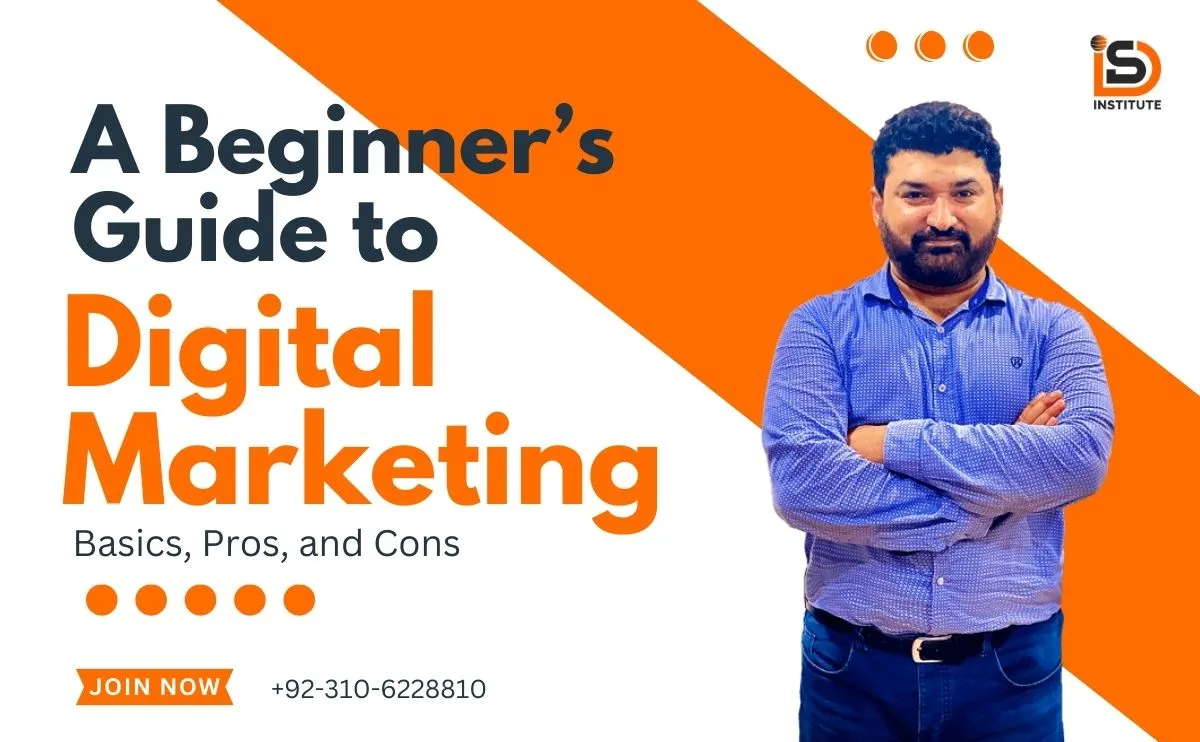A Beginner’s Guide to Digital Marketing: Basics, Pros, and Cons

In today’s world, almost everything is connected to the internet. Whether it’s shopping, learning, or searching for services, people first go online. That’s where digital marketing comes in.
Digital marketing simply means promoting your business, product, or service using the internet and digital channels like websites, social media, email, or search engines. Unlike traditional marketing (billboards, TV, newspapers), digital marketing lets you reach people directly on their screens.
What is Digital Marketing?
At its core, digital marketing is using online platforms to connect with customers. Some of the most common forms are:
- Social Media Marketing (Facebook, Instagram, TikTok, LinkedIn)
- Search Engine Optimization (SEO) – making your website show up higher in Google searches
- Email Marketing – sending targeted emails to customers
- Pay-Per-Click (PPC) Ads – paid ads on Google or social media
- Content Marketing – blogs, videos, and posts that attract and educate your audience
Think of digital marketing as the online version of opening a shop in the busiest part of town — but instead of a few thousand people walking by, you can potentially reach millions around the world.
Pros of Digital Marketing
- Wider Reach
You can promote your business to a global audience, not just people in your local area. - Cost-Effective
Compared to TV or print ads, online marketing is much cheaper. Even small businesses can run ads with limited budgets. - Targeted Advertising
You can show your ads to specific groups, like “men between 25–40 living in Sialkot who are interested in sports.” - Measurable Results
You can track clicks, views, and sales in real-time to see what’s working and what’s not. - Customer Interaction
Social media allows direct communication with your customers, helping you build trust and relationships.
Cons of Digital Marketing
- High Competition
Since it’s easy and affordable, almost every business is doing it. Standing out requires creativity and strategy. - Constant Changes
Digital platforms like Google and Facebook keep updating their algorithms, so what works today may not work tomorrow. - Time-Consuming
Running campaigns, creating content, and analyzing results require time and consistency. - Risk of Negative Feedback
Online reviews and comments are public. A single bad experience can hurt your brand’s image. - Dependence on Technology
If you or your target audience don’t have good internet access or devices, your message won’t reach them effectively.
Final Thoughts
Digital marketing is one of the most powerful tools available for businesses today. It helps you reach the right people, at the right time, and often at a lower cost than traditional marketing.
However, it’s not a magic solution. It requires time, effort, and continuous learning. The best approach is to start small, experiment, track your results, and grow step by step.
If you want your business to stay visible in today’s online-first world, digital marketing isn’t optional — it’s essential.
✨ Want to Learn Digital Marketing?
If you want to master the art of digital marketing or join our professional Digital Marketing Course, enroll today and start your journey.

